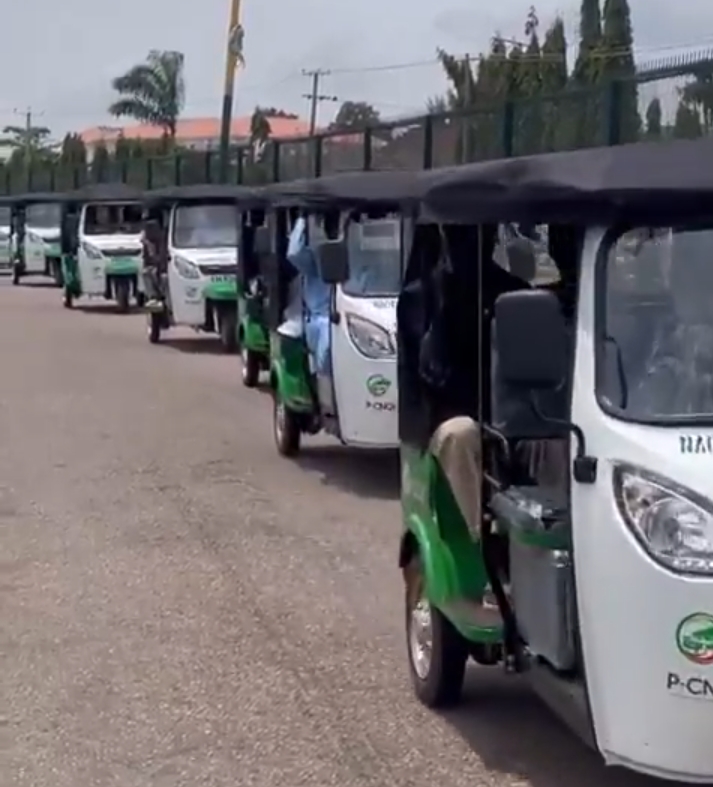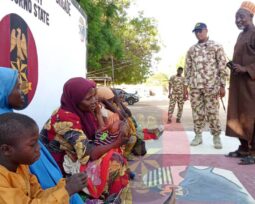By Alabi Abdul, Kaduna
Kaduna State has received 150 Compressed Natural Gas (CNG)–powered tricycles under a federal deployment initiative aimed at reducing transport costs, creating jobs, and promoting the national shift toward cleaner energy alternatives.
The deployment is part of the TNG Tricycle Initiative, which began in May 2024 following the commissioning of the TNG Assembly Plant in Shandamu, Ogun State. The tricycles deployed to Kaduna mark one of several state-level distributions across the country, with the rollout focused on locations that already have functional TNG refueling infrastructure.
Mr. Nuhu Christopher, the Platform Deployment and Recovery Officer for the initiative, said the tricycles are being issued on a subsidized lease-to-own model. Each unit, worth ₦5 million, is given to beneficiaries at half price ₦2.5 million payable over 24 months after a one-month moratorium. He said the programme has so far created over 9,000 direct jobs and 75,000 indirect jobs nationwide.
“This initiative is for all classes of Nigerians, not just the poor,” Christopher said during the handover in Kaduna. “Everyone moves from point A to point B. We are not only cutting down transport costs, but also improving the livelihoods of thousands of citizens.”
He added that the expansion of CNG-powered transport has been bolstered by the Dangote Refinery’s recent ₦720 billion investment in the sector, which has helped to grow the CNG market and reduce Nigeria’s annual energy costs by an estimated ₦1.7 trillion.
National President of the National Commercial Tricycle and Motorcycle Owners and Riders Association (NACTOMORAS), Sani Hassan, welcomed the intervention, saying it had brought relief to thousands of operators grappling with the impact of the 2023 fuel subsidy removal.
“Before now, tricycle operators spent between ₦13,000 and ₦15,000 daily on petrol. With CNG, the cost of fueling drops drastically to around ₦2,000 or ₦3,000 per day. This is a huge relief,” he said.
Hassan described the deployment as a lifeline for riders and their families. “Every tricycle empowers not just the driver but several dependents such as wives, children, extended family, as well as local mechanics, food vendors, and spare parts dealers who benefit from the ecosystem,” he explained.
He urged all beneficiaries to treat the tricycles as a business, not a gift. “Everyone must pay back. This is not a loan scheme you can default on. The money will be collected weekly and remitted through the association to the federal government,” he said.
To ensure compliance and transparency, Hassan revealed that each CNG tricycle is branded in Nigerian colours and marked with a unique serial code. The association has also introduced a 30 percent fare reduction policy for all passengers using the new CNG-powered units.
“For instance, if the fare from Kawo to Central Market was ₦200, it will now be ₦140. We are calling on passengers to insist on this discount. If any rider overcharges, they should report using the phone number displayed on the tricycle,” he stated.
He assured that areas currently serviced by traditional tricycles will also benefit from the new CNG fleet, except those restricted for security or regulatory reasons.
Both officials and association leaders called for more investment in the CNG sector, which they described as the future of affordable, sustainable transportation in Nigeria.







